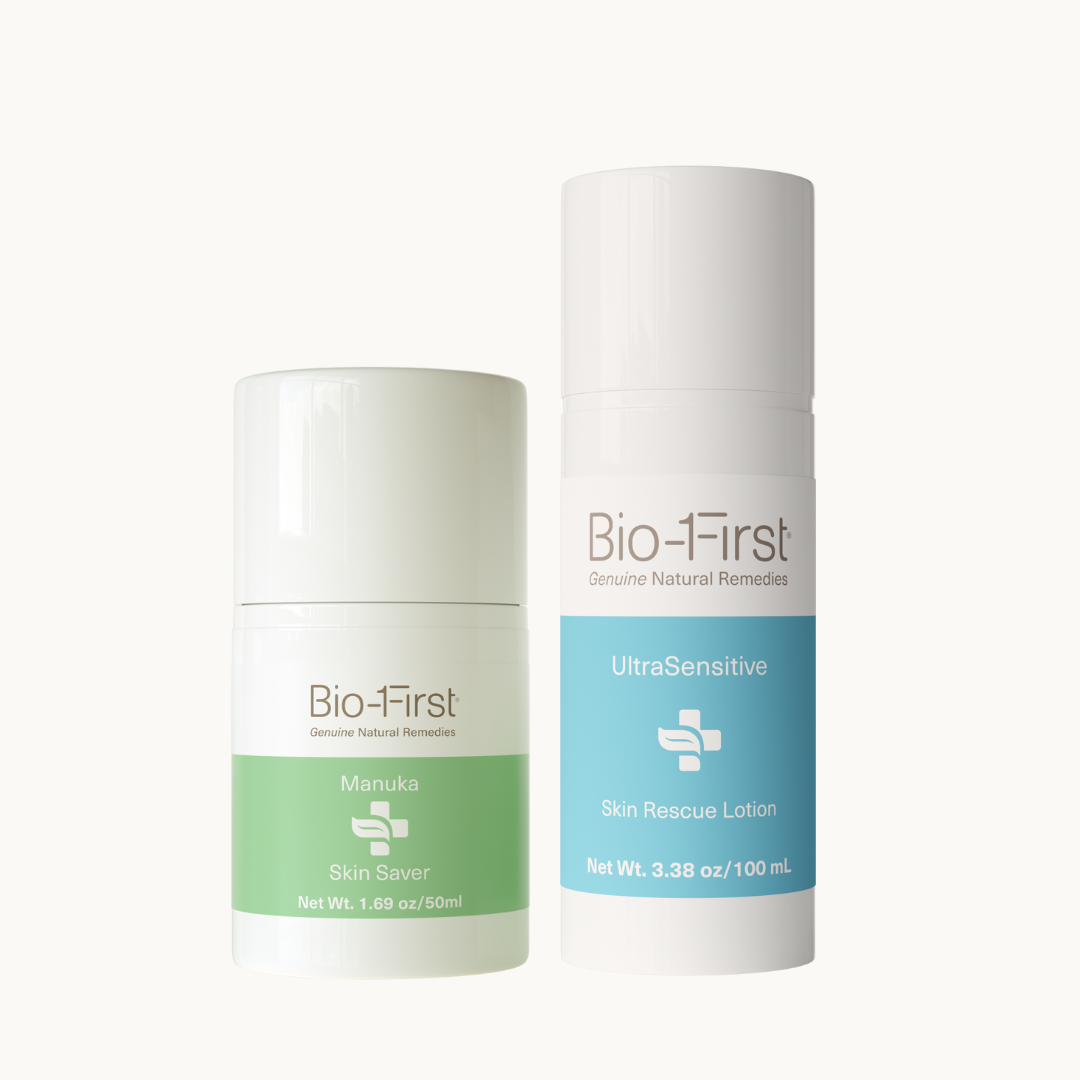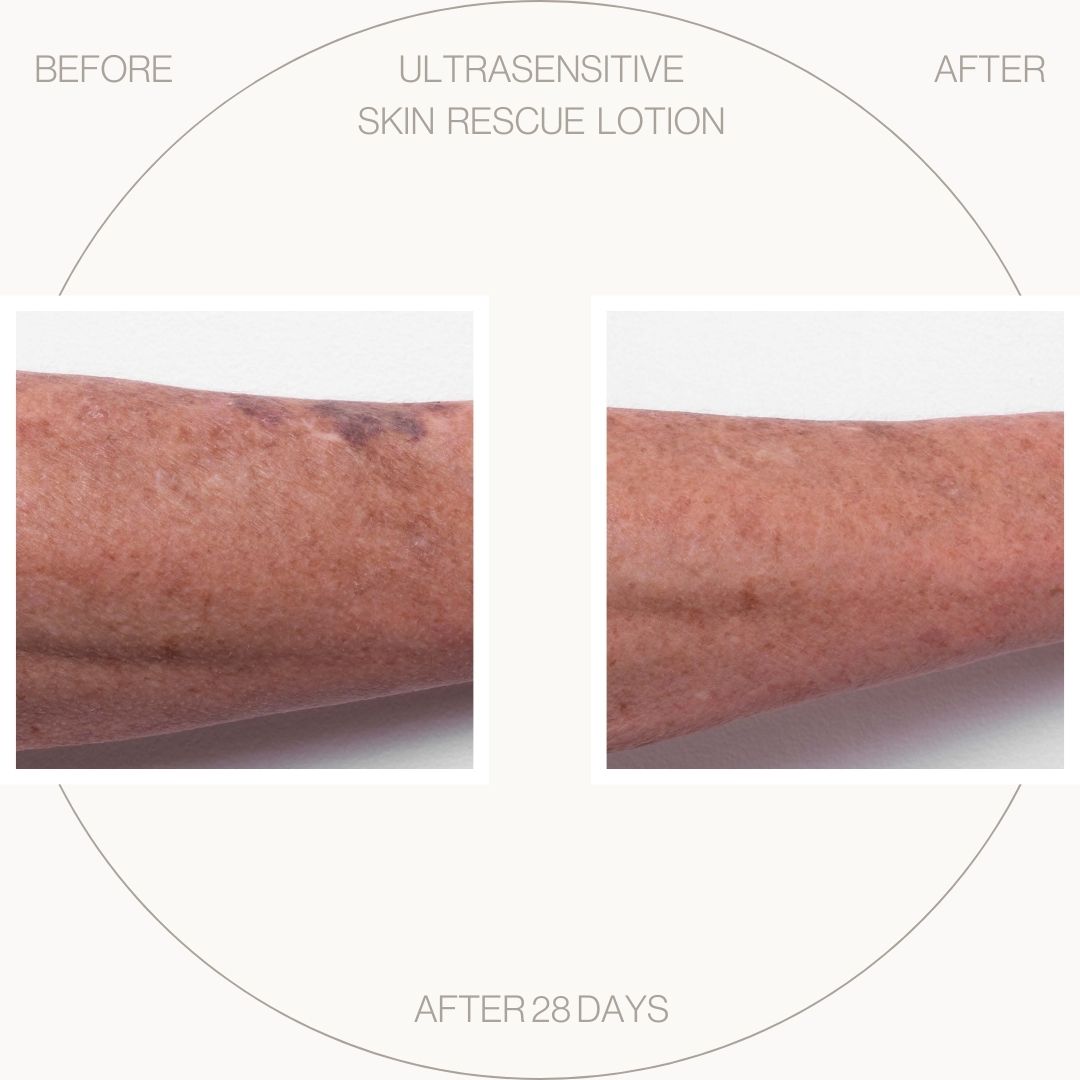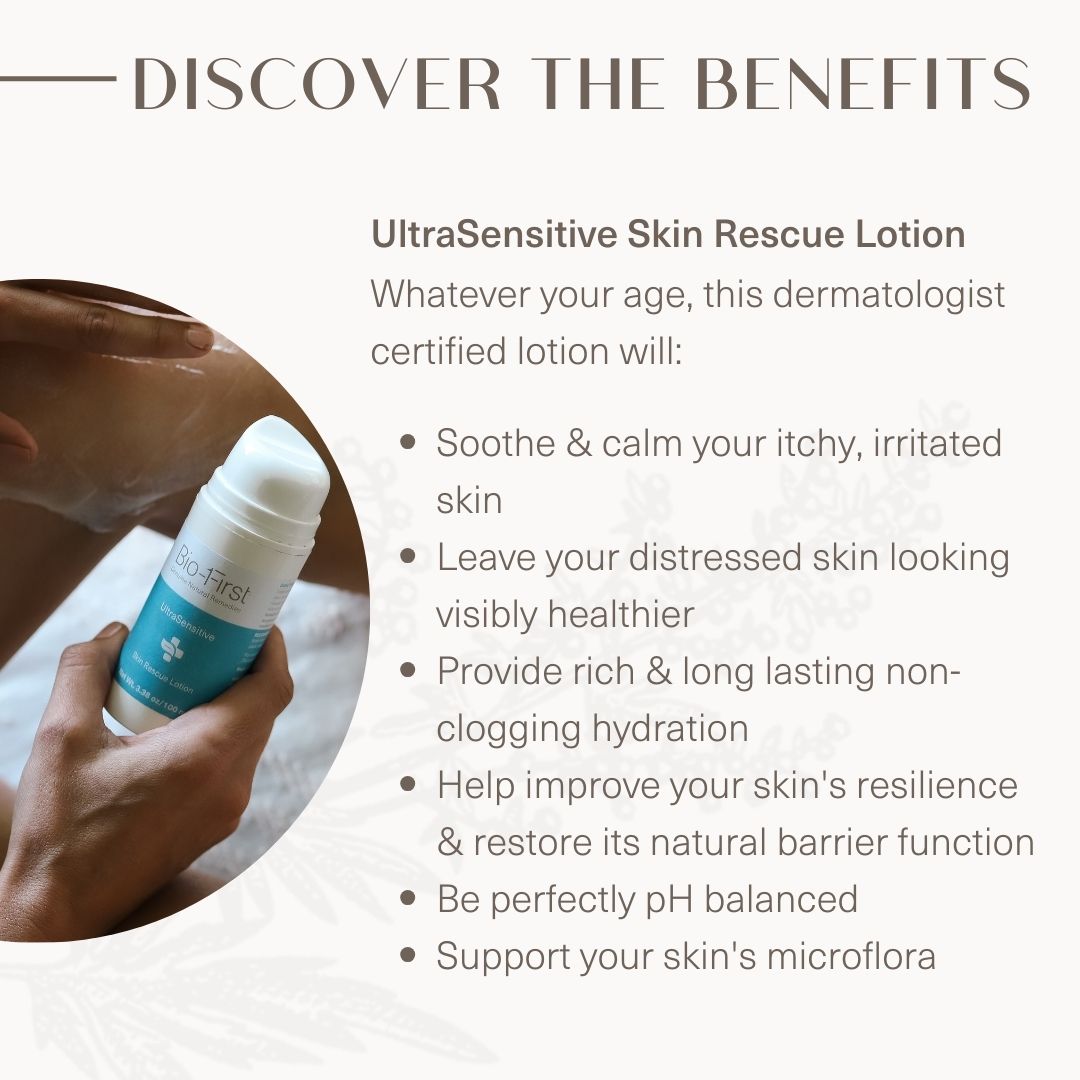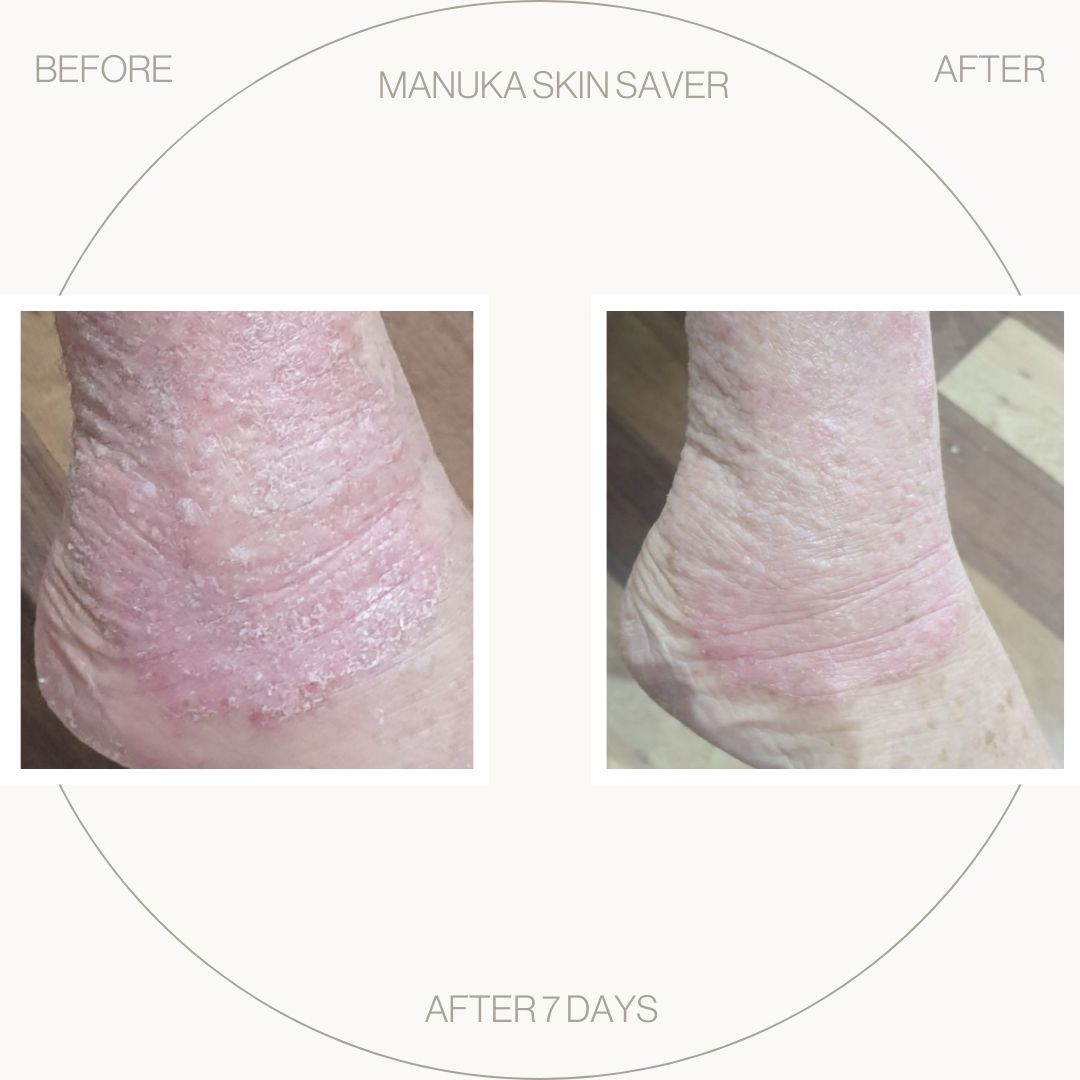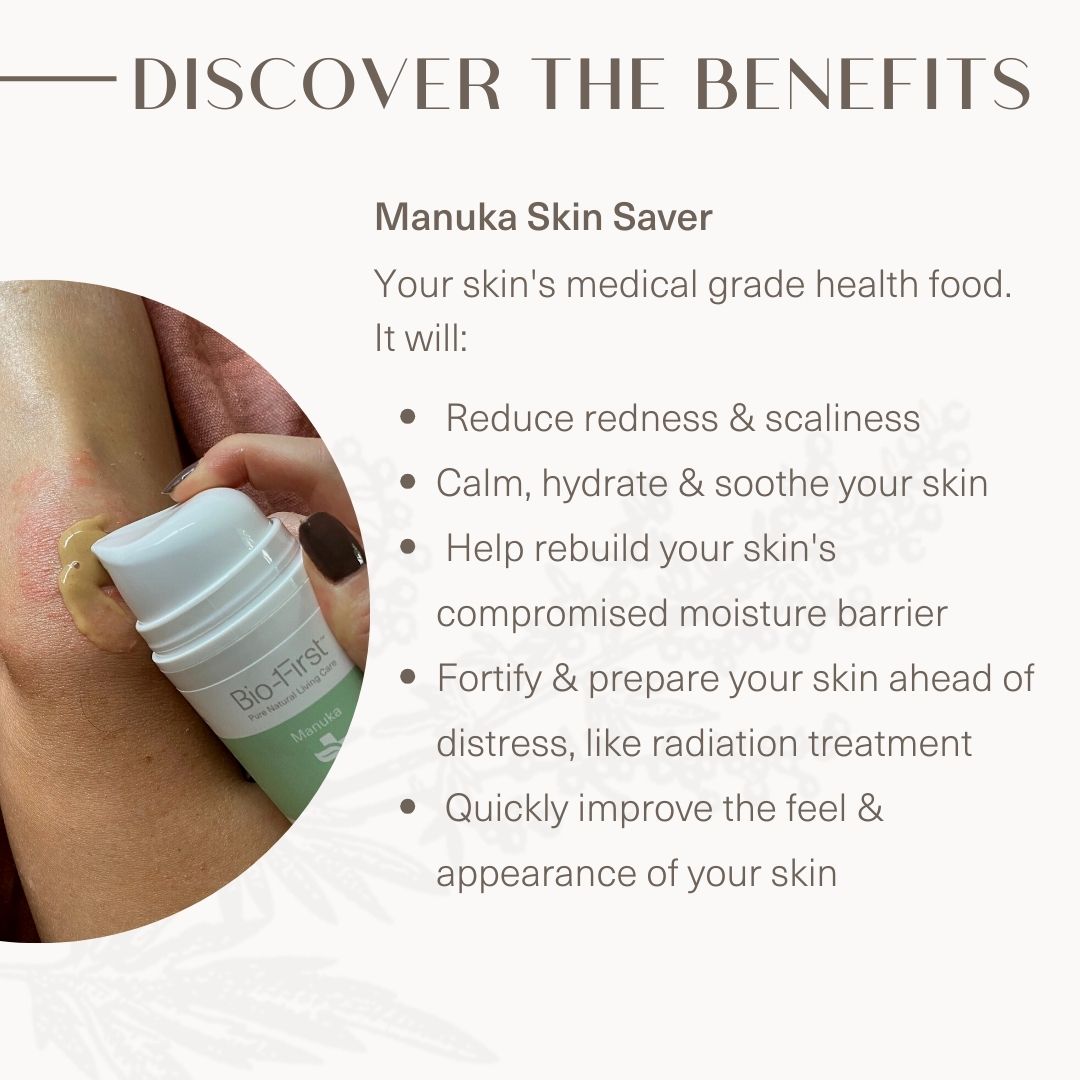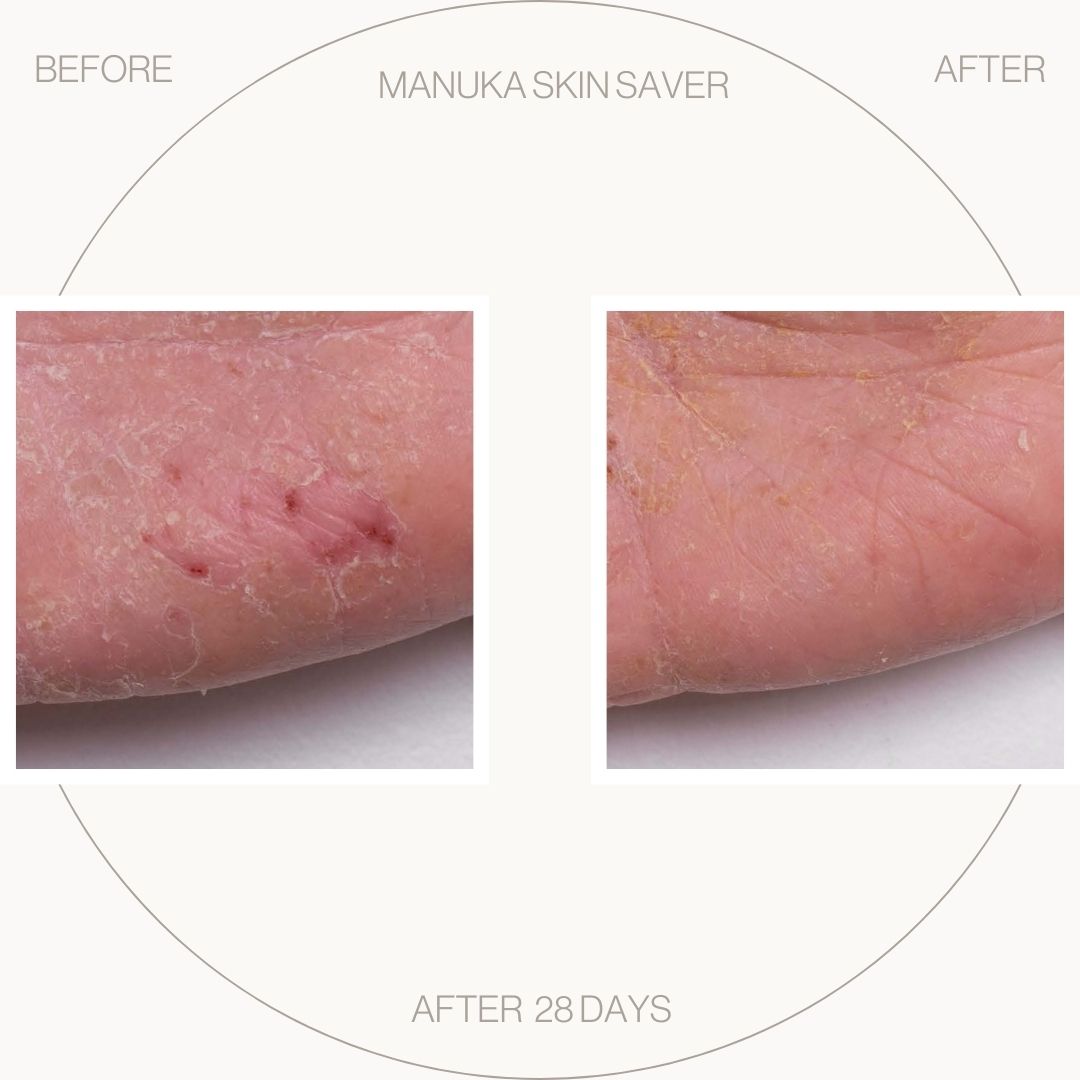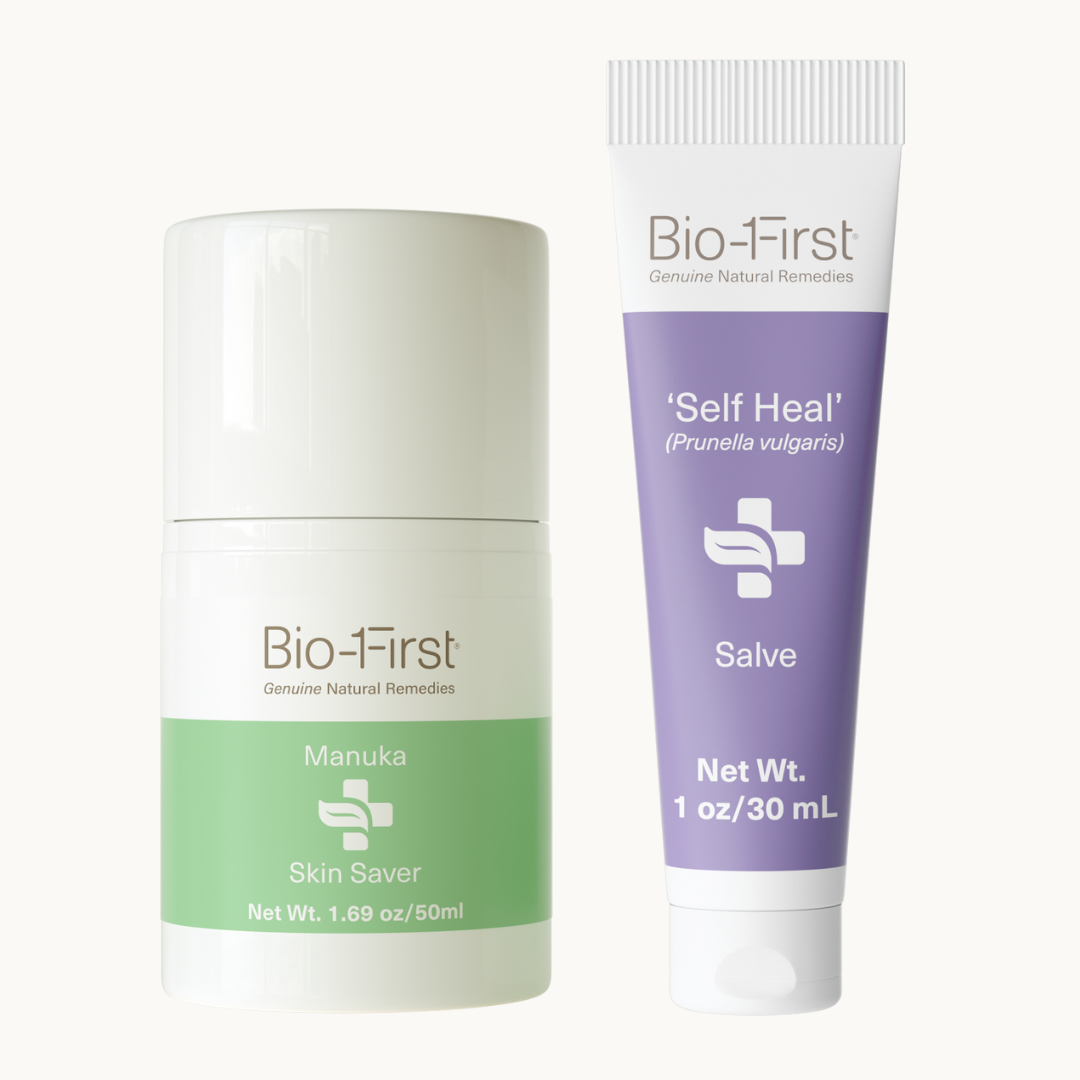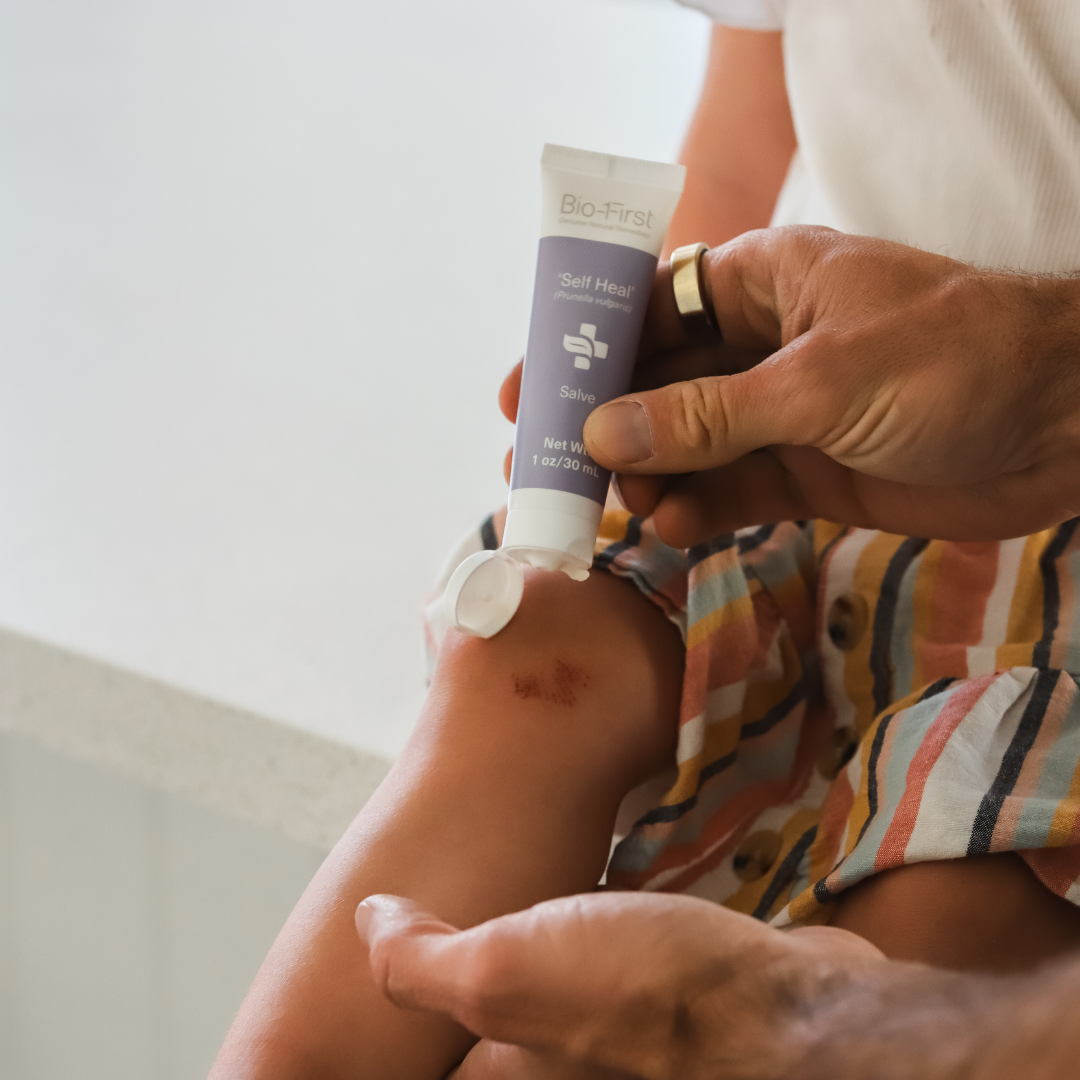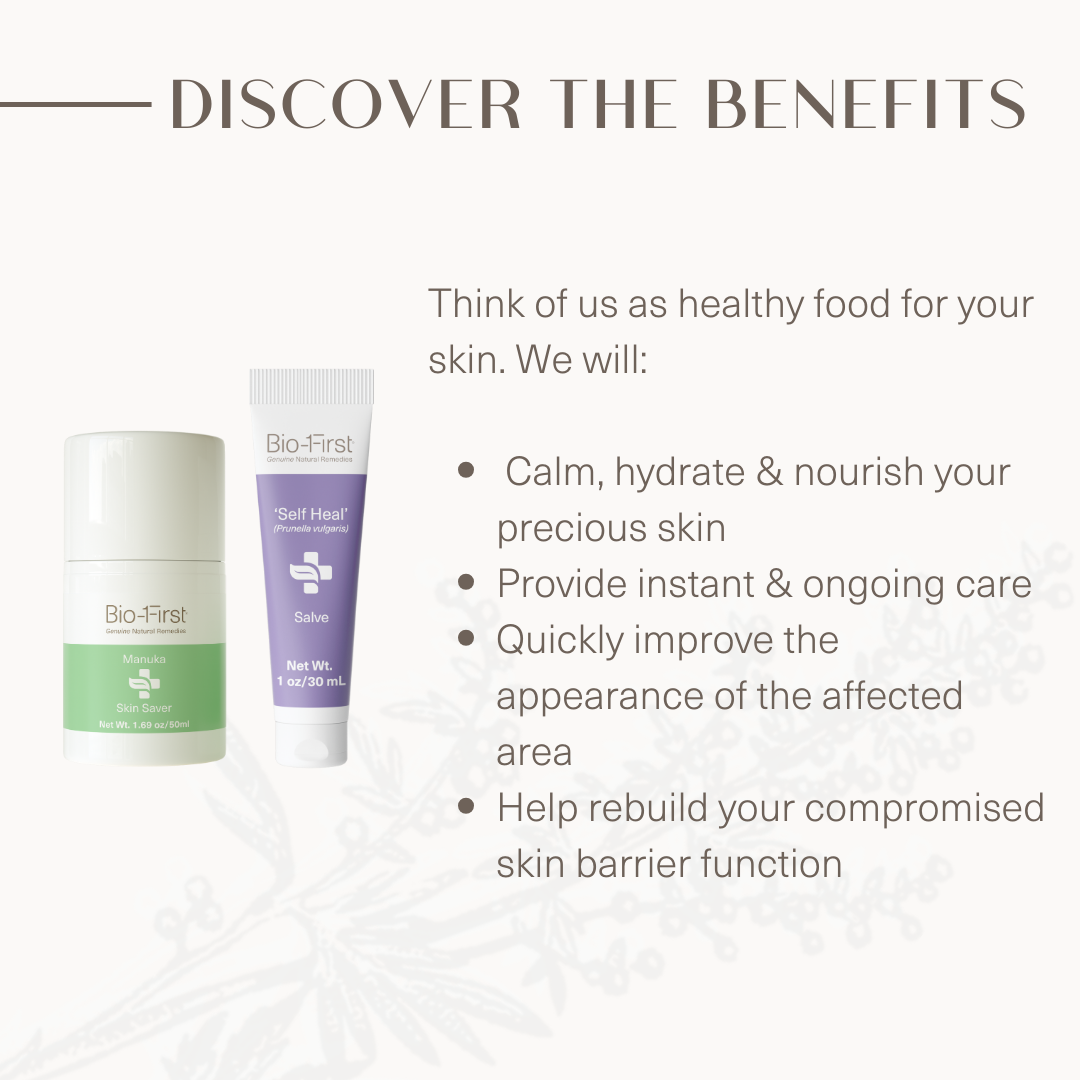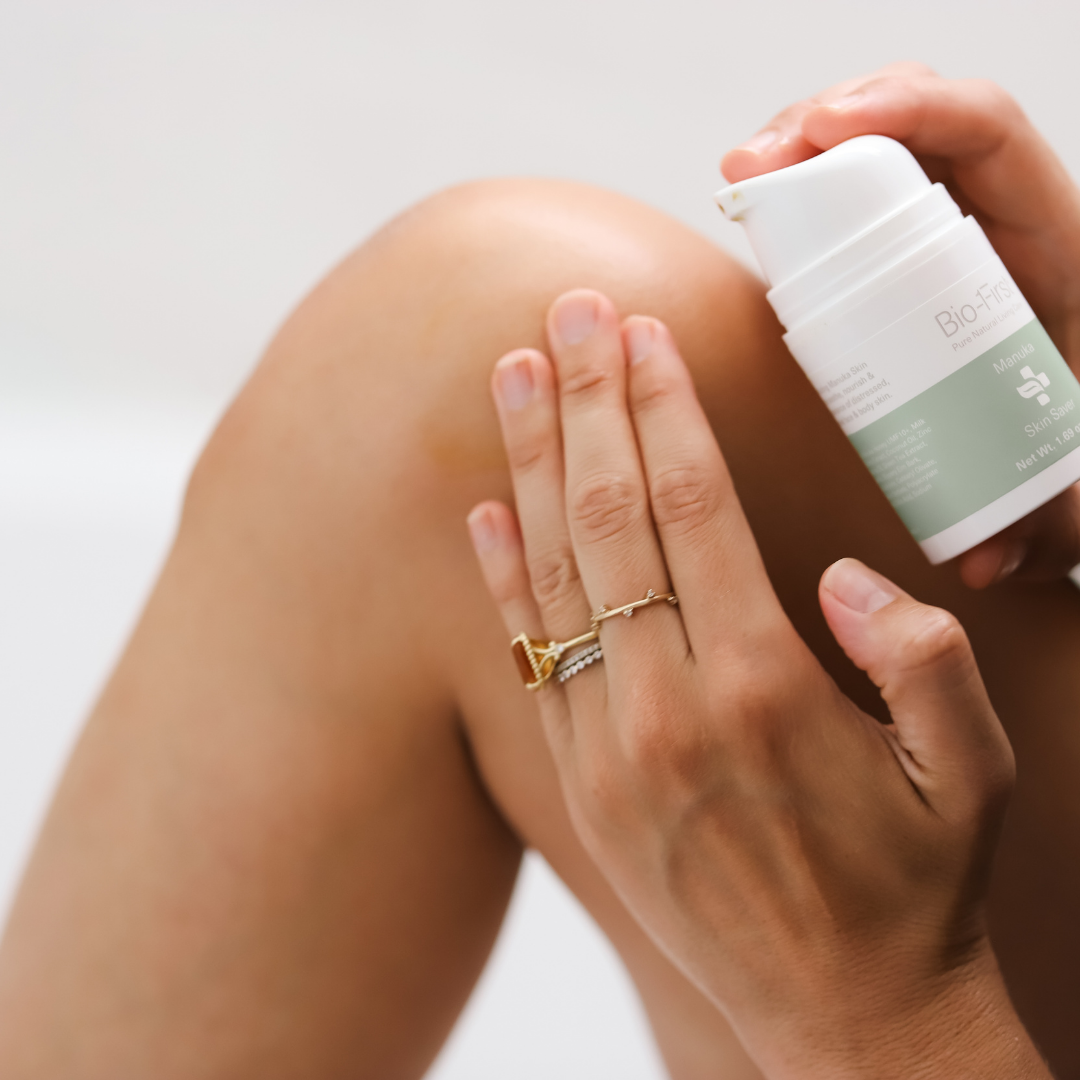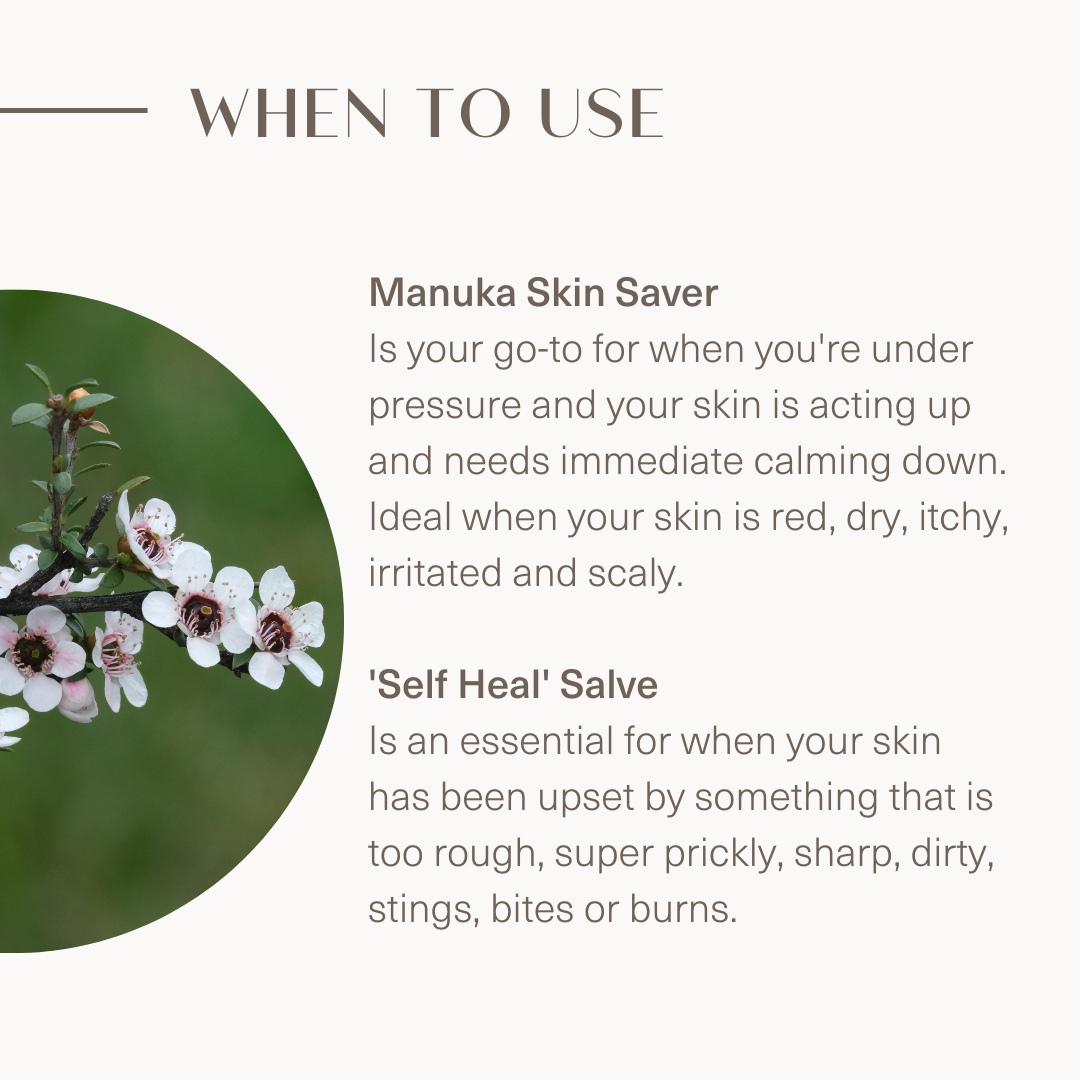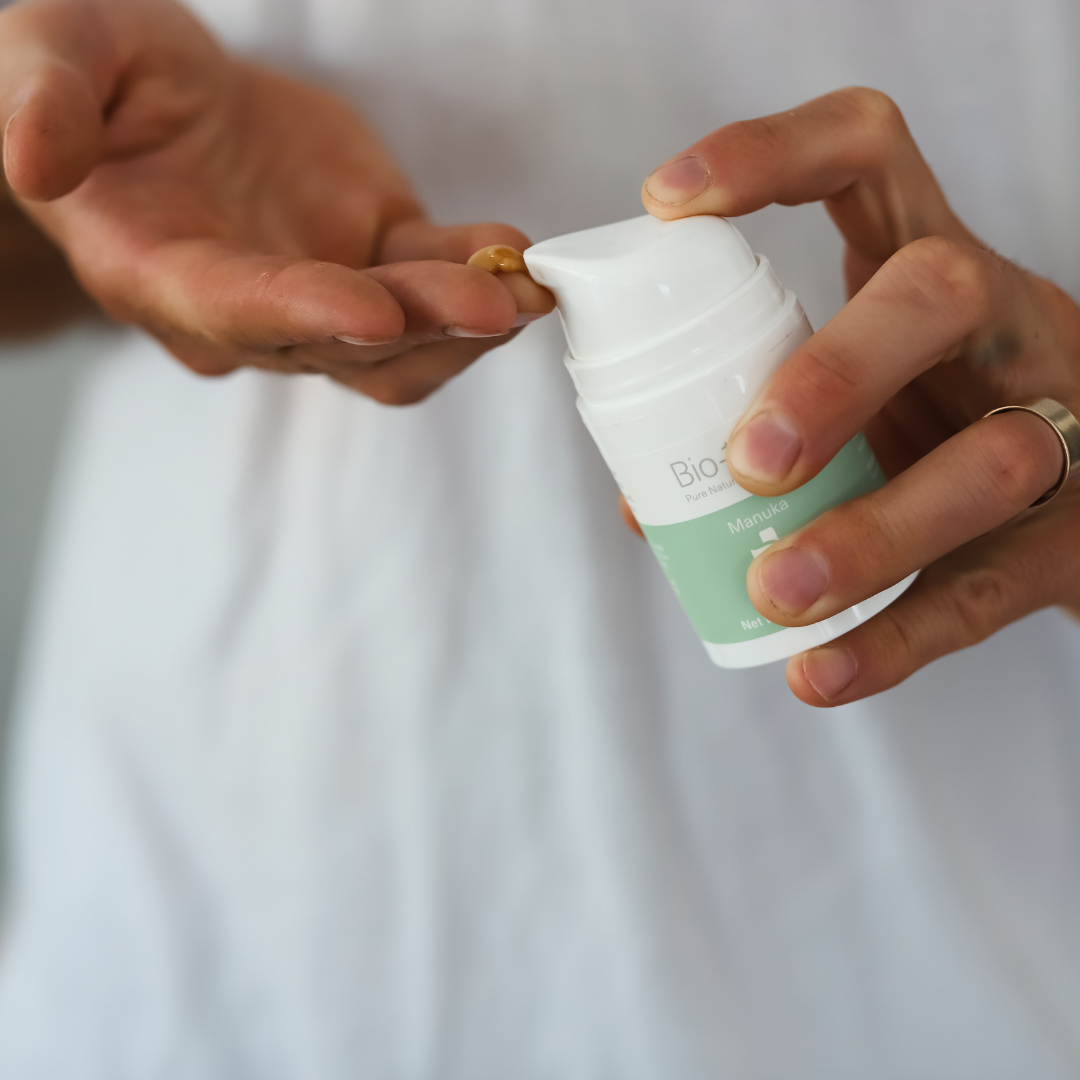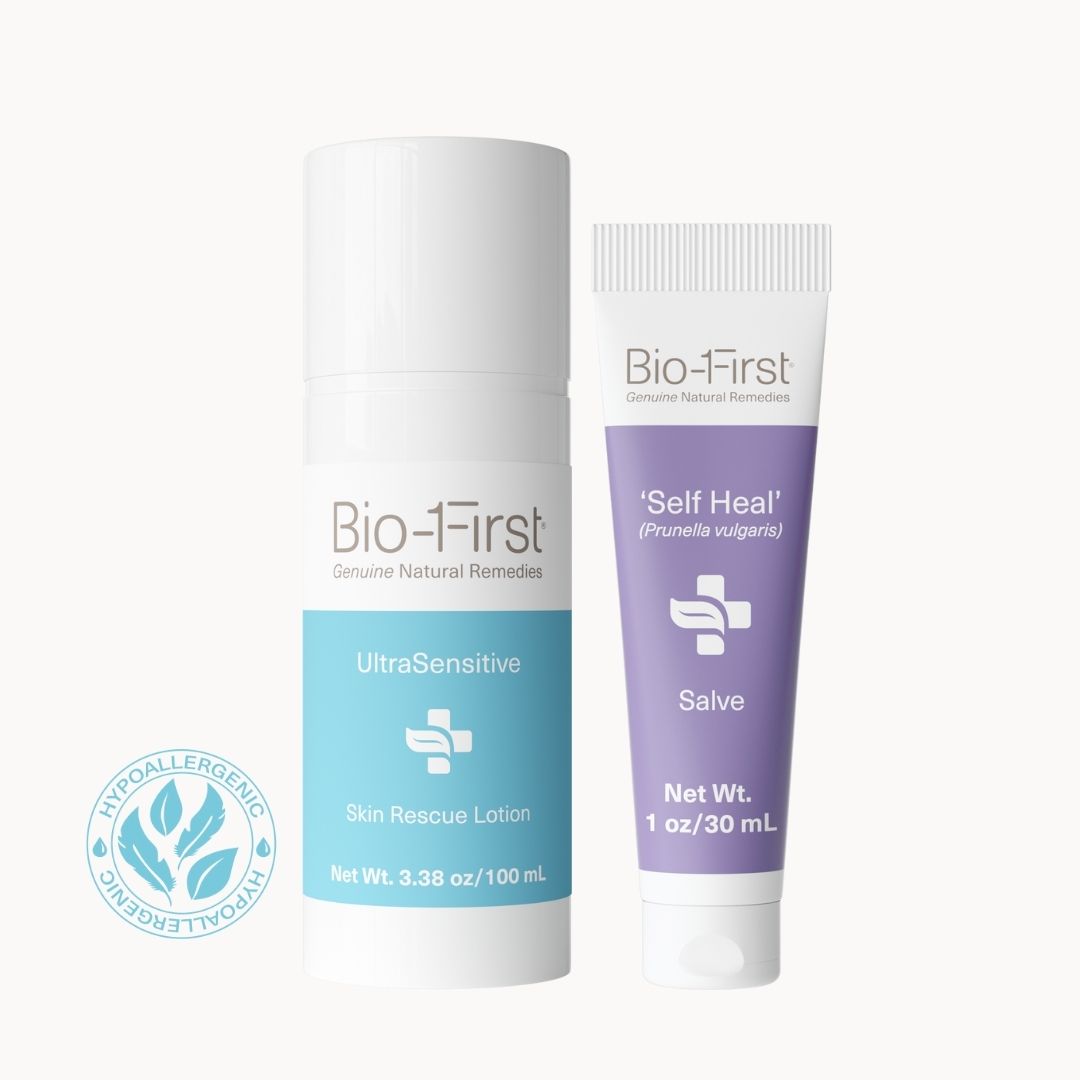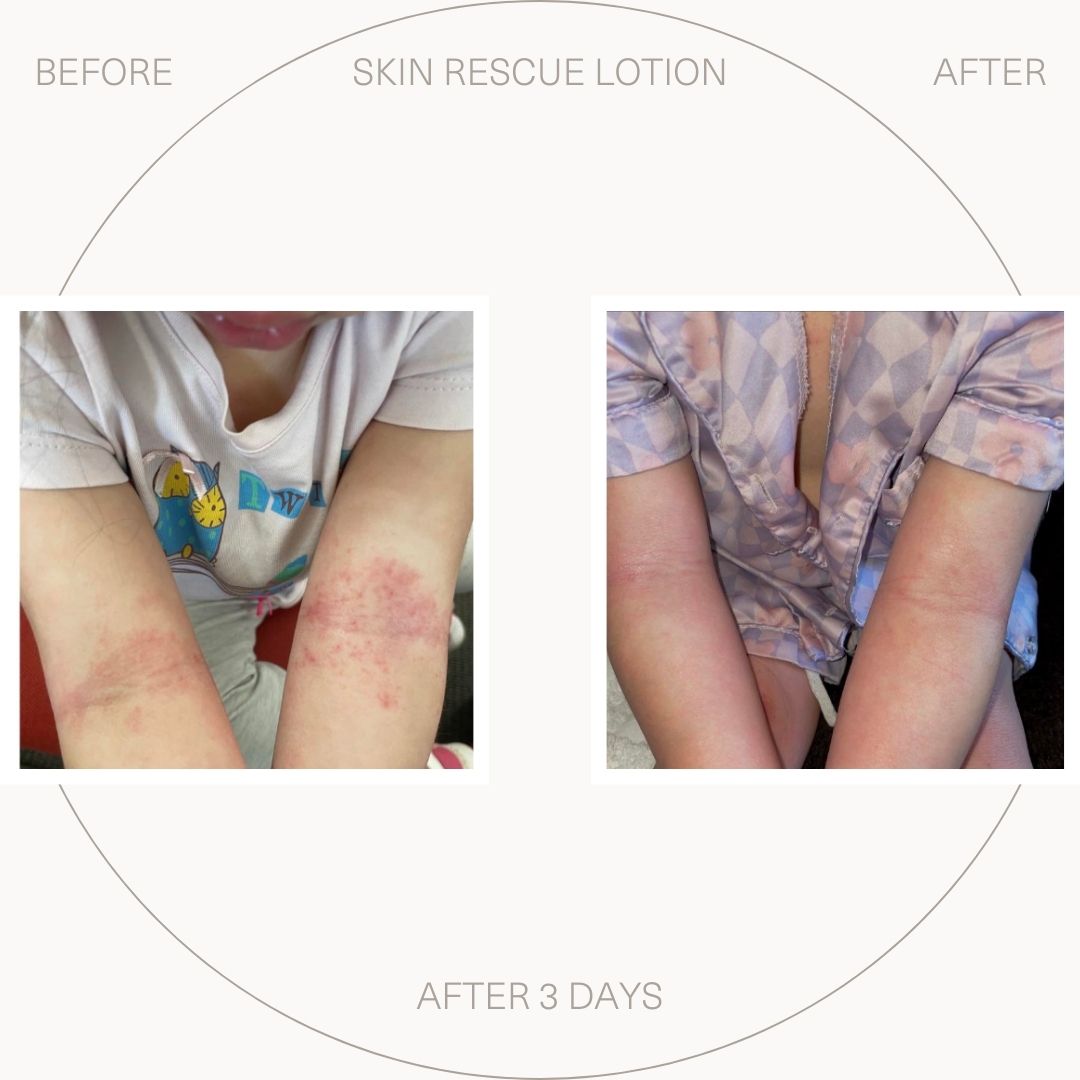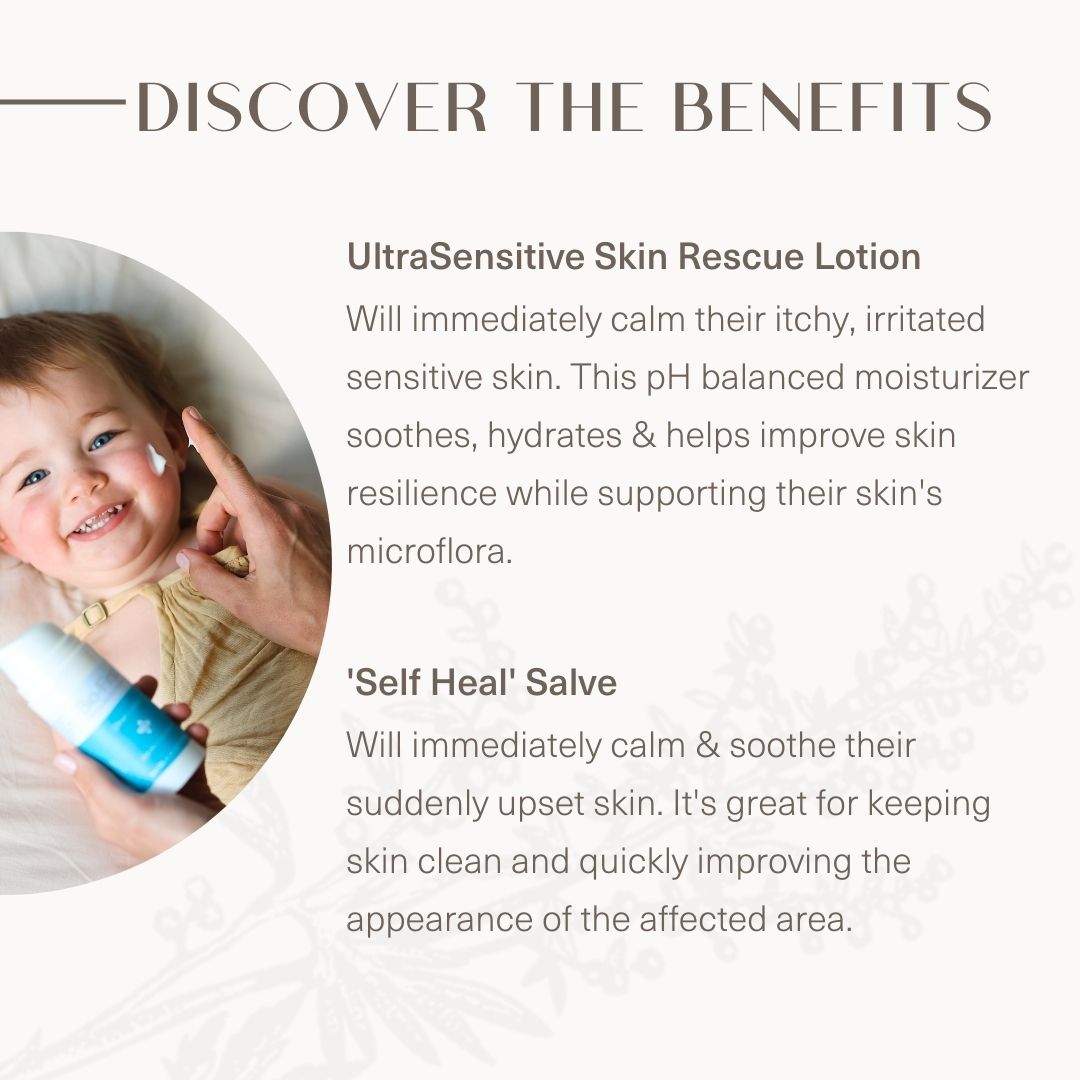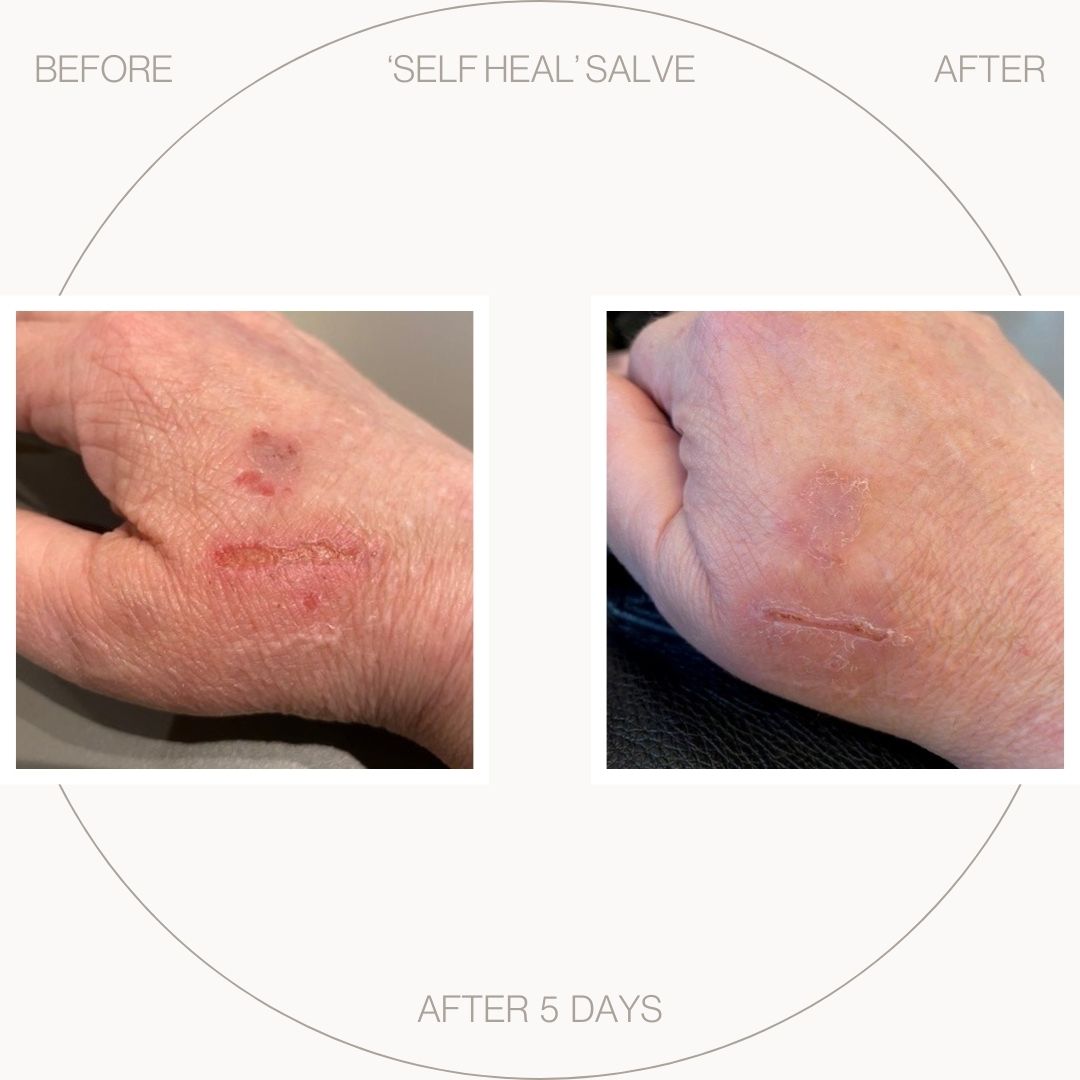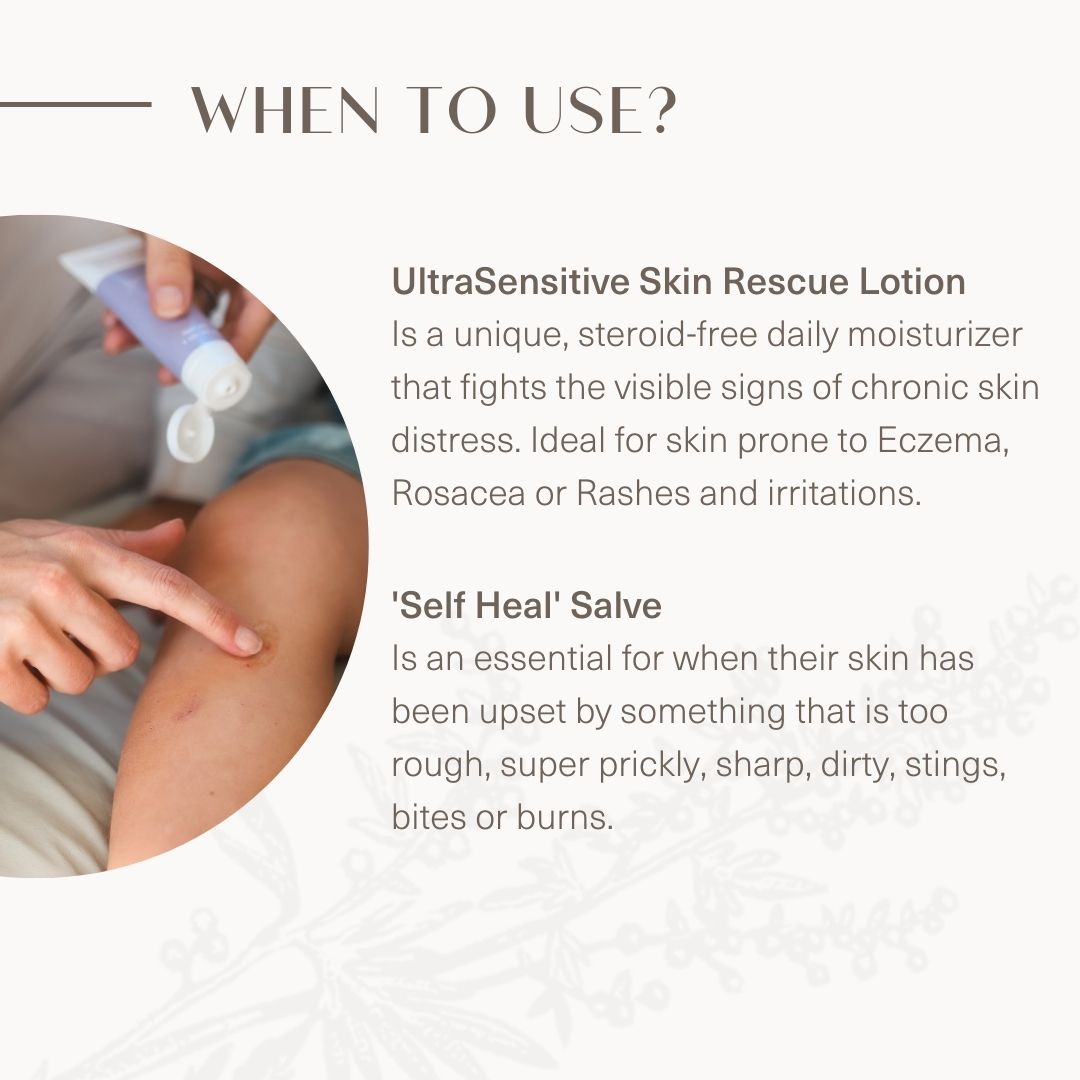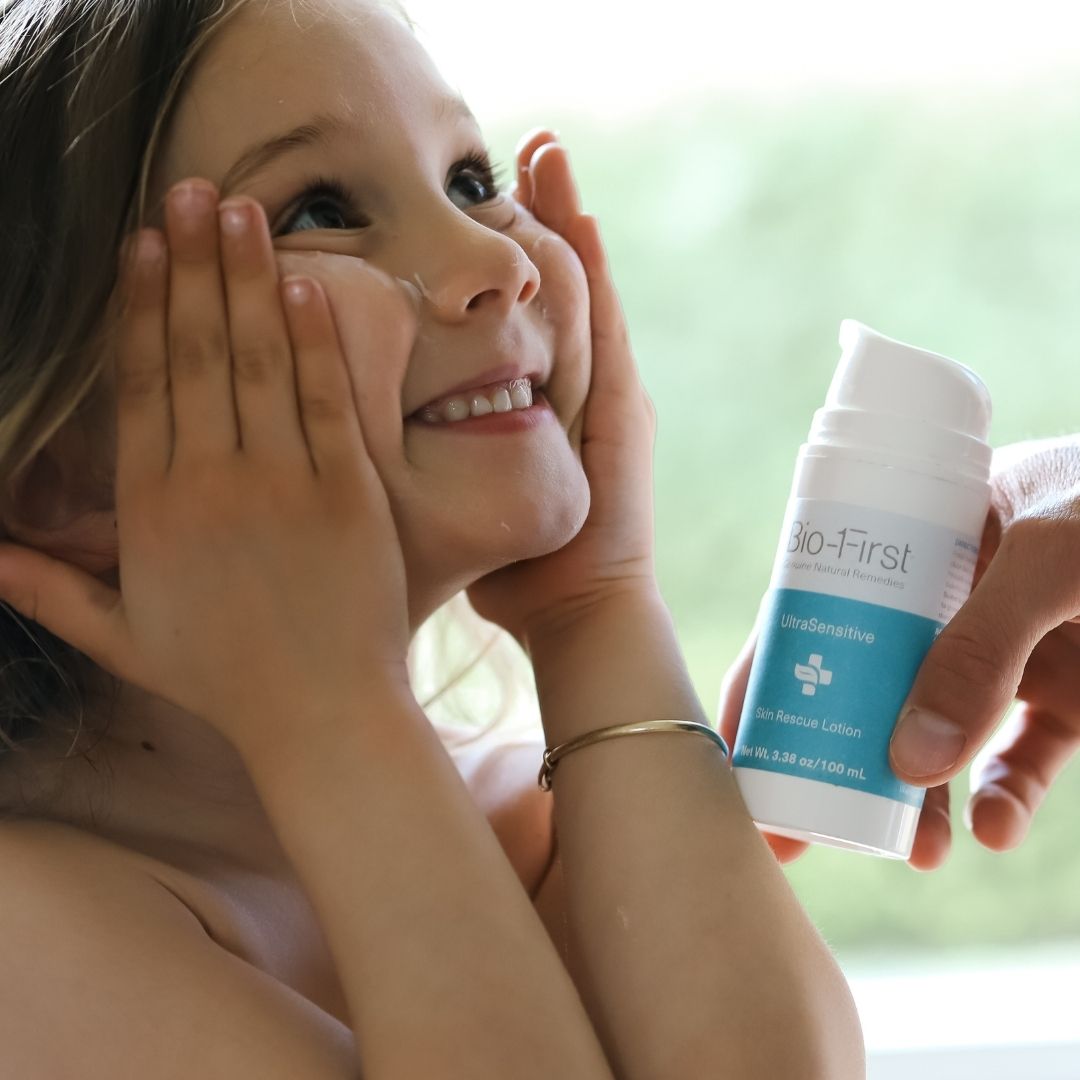The number one priority here is to care for the child holistically and not just focus on their skin issues. When a child is prone to Eczema there are complex, variable and individual factors at play.
A child’s unique personality, genetics, health profile and nature are all a part of why they’re prone to chronic rashes.
How can you help ease its impact?
Knowing your child and factors linked to flare-ups is so important and no-one else can do this like you can. Of course there are also general issues and possible causes:
- Genetics – an inherited tendency
- Allergies
- Irritants in the home, food, air, water, clothing, soaps, skincare products
- Infections and illness – these can cause eczema outbreaks
- Stress – may not cause but can make worse
There are 6 main types of Dermatitis/Eczema – this note is focused on Atopic which affects 1 in 5 children at some time, and 1 in 10 adults!
Before sharing some tips for managing skin prone to Eczema - please note there are times when a visit to the doctor is necessary such as:
- The skin hasn’t cleared after 3 weeks of using a prescription treatment
- There are lesions, blisters or open sores
- The skin is cracking and bleeding
- Infection has developed due to scratching
- The child is otherwise unwell and miserable
Dr Jude’s Top Tips:
- Keep the skin constantly moisturised with a deeply hydrating product even putting some in the school bag to use during day
- Be sure to apply liberally onto warm skin straight after bath or shower
- Choose a moisturiser that also helps reduce itching and scratching – products containing Colloidal Oatmeal can be ideal
- Protect against infection by keeping affected skin clean with gentle soap
- Select hypoallergenic products and even then patch test before use
- Wash sheets, towels and clothes often using mild soap
- Stick to natural fabrics against the skin
- Avoid sweaty activities and situations where child overheats
- Be aware of possible pet allergies
- Be aware of possible food triggers
- Try to de-emphasise rather than over-emphasise the problem
- Convey confidence and reassurance that your simple measures and treatments will help
- Encourage child to go in clean ocean if old enough and you have that option
- For bad flare-ups, especially heat or allergy related, apply freshly picked and peeled aloe vera directly to skin – keep a supply of pieces in freezer
- Find a single natural product that is emollient, hydrating, healing, gentle and protective
- Look for one that repairs the skin barrier, helps balance pH and restores the microbiome – this will be your trusted friend and constant companion!

Blogs on similar topics:



